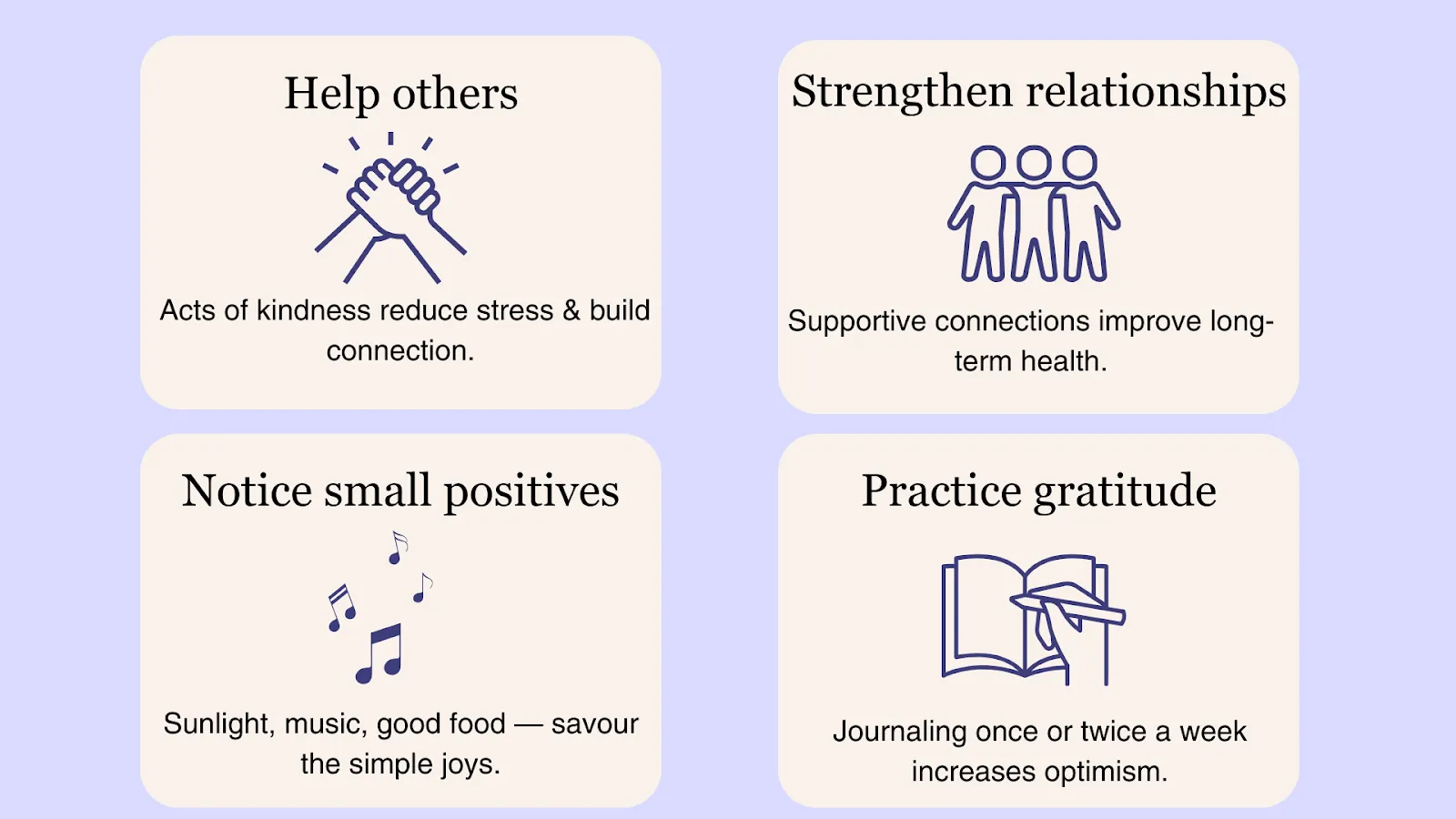By mid-afternoon, even the most motivated people can hit a wall. Lunch is over, notifications keep buzzing, and your mind starts to feel a little scattered. The good news? Staying focused isn’t just about pushing harder. Research shows it’s more about creating habits that refresh your attention and restore your energy as the day goes on.
Before you read: We understand that the information and support we provide in this article may not be helpful for everyone. If you are in need of additional support or resources, please reach out to a professional, or connect with our team at contact@layla.care.
In this second part of our Focus Formula series, we’ll explore three more science-backed ways to stay sharp and balanced: becoming more mindful, improving sleep, and lifting your mood to sustain focus.
Finding Your Flow: Everyday Mindfulness
Mindfulness doesn’t have to mean hours of meditation. It’s simply the practice of paying closer attention to what you’re doing in the moment. Finding 10–15 minutes spread throughout your day for Mindfulness can support stress reduction and make it easier to focus.
One of the first places to try incorporating mindfulness is with your everyday tasks. Try eating without scrolling through your phone. Walk without thinking about your to-do list. Or give your attention fully to a conversation. These shifts encourage your brain to stay present.
You can also try:
- Slowing down: Rushing puts your mind on autopilot. When you slow your pace—whether cooking, writing, or answering emails—you invite calm and clarity back in.
- Finishing what you start: Switching constantly between tasks can cut productivity by almost half. Practice completing one thing before moving to the next.
- Creating rituals: Small routines like journaling in the morning or stretching before a meeting give your brain cues to focus.
Mindfulness is about noticing our surroundings and staying present in the here-and-now. Over time, it helps quiet distractions and sharpens attention.
Sleep and Focus: Setting Yourself Up the Night Before
Adequate rest is another key part of the focus formula, supporting our ability to concentrate more fully. While naps as short as 15–20 minutes can provide benefits, nighttime sleep remains the strongest foundation for sustained focus. However, since naps may not be realistic for most schedules, focusing on quality nighttime rest can make a powerful difference in next-day focus. Research shows that high-quality sleep supports attention, memory, and mood– all key for staying engaged.
Here are some proven sleep hygiene habits to try:
- Set a wind-down routine. Reading, stretching, or journaling before bed signals your body it’s time to rest.
- Limit screens. Blue light from phones or laptops can delay melatonin, making it harder to fall asleep.
- Stay consistent. Going to bed and waking up at the same time, even on weekends, helps your body’s natural rhythm.
- Optimize your sleep space. A cool, dark, and quiet room encourages deeper rest.
Think of sleep as the foundation of focus: getting restful sleep can help your attention feel clearer and more steady the next day.
The Link Between Happiness and Focus
Your mood directly influences your ability to concentrate. When you feel positive, it’s easier to resist distractions and stay engaged. Building in small practices that lift your mood can have a big impact on focus.

Some helpful strategies include:
- Support others: Acts of kindness activate the brain’s reward system, reducing stress and strengthening feelings of connection.
- Strengthening relationships: A Harvard study found that people with supportive relationships are healthier and happier long-term. Even a short call with a friend can improve your mood.
- Practicing gratitude: Writing down things you’re thankful for once or twice a week boosts optimism and well-being.
- Noticing small positives: Sunlight, a favourite song, or the taste of lunch—savouring these moments trains your brain to lean toward focus and balance.
If you’re curious about your own patterns, try starting a mood journal to track what affects your energy and concentration most.
Layla’s Takeaway Tips
From being more mindful in daily routines, to shifting your sleep habits, to lifting your mood with gratitude and connection, these habits all show how small shifts can restore focus and energy. Layered together, they create a practical foundation you can return to whenever the day feels scattered.
We’ve added three more habits to your focus toolkit:
- Mindfulness: train your brain to be present through small daily practices.
- Sleep: Strengthen focus by improving rest.
- Positivity: strengthen mood through gratitude, connection, and kindness.
Together with the strategies from Part 1—prioritizing tasks with the 80/20 rule, moving your body, and reshaping email habits—you now have some options to customize your own formula for staying focused, balanced, and clear throughout your day.
A message from Layla
If you require any immediate support, please reach out to a professional, or click here to explore our crisis and community resources. If you’d like to inquire about finding mental health support that’s right for you, a member of our team is happy to assist you. You can email us at contact@layla.care for any inquiries, or complete our intake form to reach out to a member of our care team.



